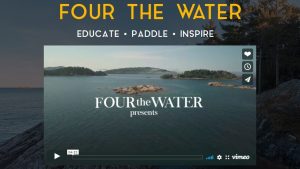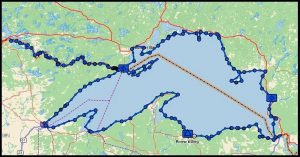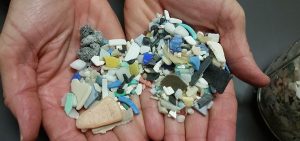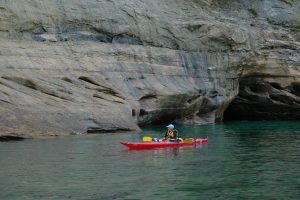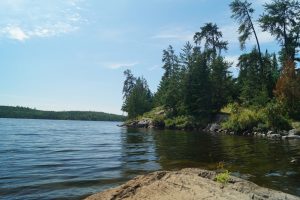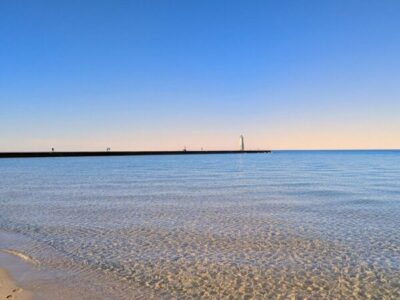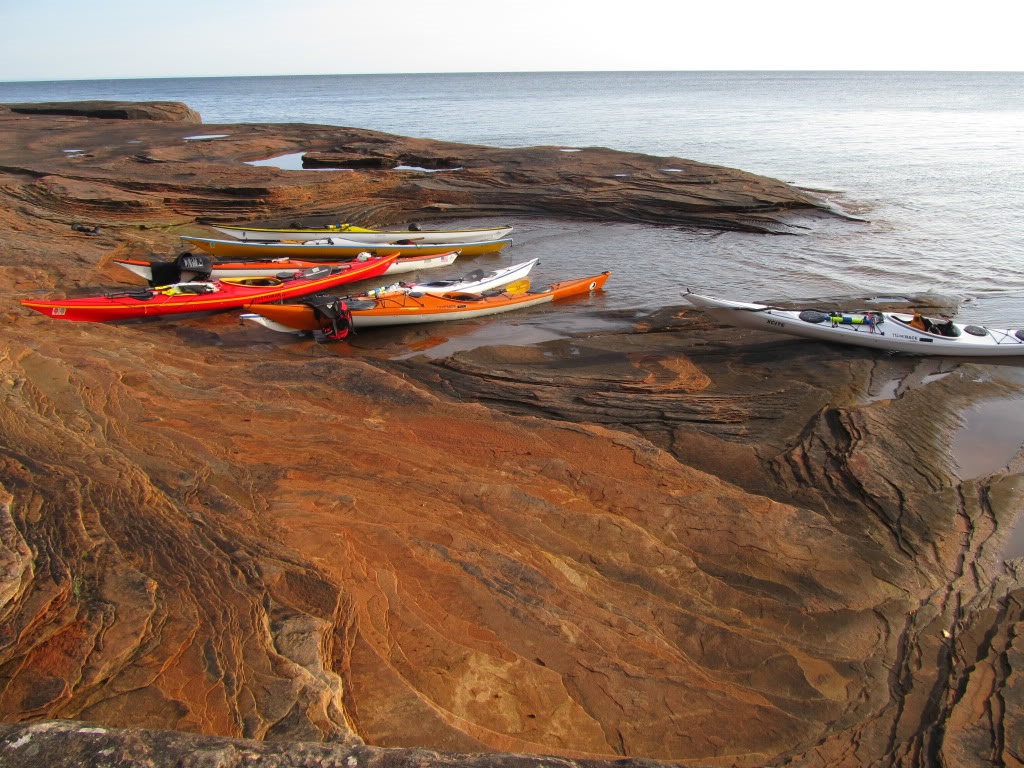
Four kayakers paddle Lake Superior, clean trash and take samples for science
Think of them as servants of the inland seas, destined to clean its waters. Or perhaps rogue paddlers, bent on restoring the northern Great Lakes.
But these kayak guides – Ryan Busche, Jared VanOordt, Karol Rajski and Drew Etling – call themselves ‘Four the Water.’ And on May 21 in Marquette, Michigan, these vigilante Vikings began a three-month paddle along the 2,726 miles of Lake Superior’s coastline, armed with a message of conservation and a mission of cleanup.
“We all pretty much went to Northern (Michigan University), all kayak guides for Pictured Rocks (National Lakeshore),” said Rajski. “For two summers, we kayaked the same shoreline every single day.”
“Then we got this far-fetched idea, ‘we should just kayak the whole thing,’” said Rajski.
No small endeavor, the crew spent months preparing food, collecting sponsors and building a website that would serve as their digital home base — where people could read their blog posts and track their progress via GPS. However, it was more than just a dream that would serve as inspiration to traverse the Great Lakes’ largest body of water.
“When you start seeing how beautiful the shoreline is, you want to see it all,” Rajski said. “But also, you want to do it for a cause. You want to accomplish the feat, but when you can do it with a purpose, that would have so much more meaning to this.”
Etling agreed.
“It’s not about the paddling,” Etling said, “I think if we all just did it just to paddle, it wouldn’t be nearly as worth it.”
So amidst the dehydration of fruits and vegetables and coordinating camping spots, they reached out to the Superior Watershed Partnership, a nonprofit that collaborates on science-based programs. With advocacy in mind, the four friends concluded with the partnership to conduct their own experiment.
They would become citizen-scientists.
“We can’t do all that we want to do alone, so involving the public is really important in collecting data in some cases,” said Abbie Hansen. “And this was one of those cases.”
The ‘Four the Water’ crew decided to take water samples for microplastics at nine locations near cities and wastewater treatment facilities. Those samples were then shipped back to the partnership, which got the samples tested at a lab.
Microplastics are the remnants of larger pieces of plastic that have broken down. Hansen said as those particles work their way into the food web, they can soak up chemicals which can bioaccumulate in organisms when ingested.
Despite the logistical challenges of the study, Hansen used their location tracker to note their status. When they reached places like the Lake Superior Provincial Park, they mailed the bottles back to the partnership.
“It was all a matter of staying in contact,” Hansen said. “Some of it was kind of on the fly, but they were really good about staying in contact.”
Despite paddling up to 40 miles a day, the kayakers took time to document their travels, give presentations to elementary classes about their progress and collect trash.
Discovering an amalgamation of junk floating in the water, like straws, cups, cans and bottles, Etling estimates they picked up 300 lbs of trash by the end of the three-month paddle.
Whenever they acquired too much trash to carry, they handed it off to whoever would take it.
“Fortunately, we found out whenever we met someone on the lakeshore as we were paddling, we would just politely ask them ‘hey, we’re doing this, we’re traveling quite a ways and we don’t have the means to transfer this. Could you help us?’” said Karol Rajski.
Rajski said people “jumped at the idea of helping them,” just thankful they could assist in disposing of trash.
As with any Lake Superior endeavor, the journey was not met without its challenges. However, these didn’t come in the form of inclement weather. Rajski said the water was tame for much of the trip. But when ‘Four the Water’ arrived at the Canadian border, they had to split up. Because Etling couldn’t acquire a permit to enter foreign waters, he turned around.
Instead of sulking, he decided he would continue carrying his crew’s mantra to the Boundary Waters of Northern Minnesota. There, he would canoe, camp and conserve until he could reunite with his friends on the other side of Canada.
“I was running on faith, believing our mission, believing in life and going for it,” Etling said. “I wasn’t worried. My background of being in the wilderness was pretty good.”
He spent 24 days rowing 324 miles. Etling said he spent his extra days in Grand Marais picking blueberries and searching for agate, until his friends arrived. He said the reunion was the “biggest moment of the trip”
“That was an amazing moment, meeting up with them out on the water,” Etling said. “So many emotions.”
That was late July. While the trip would include detours around Isle Royale and the Apostle Islands, reality had to set in someday. That someday was Aug. 30, when the four kayakers spied the smokestacks of Marquette and barreled through strong headwinds, reaching the shore at 2:01 p.m..
“It was so strange when we landed,” Etling said. “There were people there and they were celebrating. But it didn’t set in. We were all just in a dream state.”
Featured Image: The Apostle Islands a group of 22 islands in Lake Superior, Photo by Mary Fairchild via flickr.com cc 2.0


